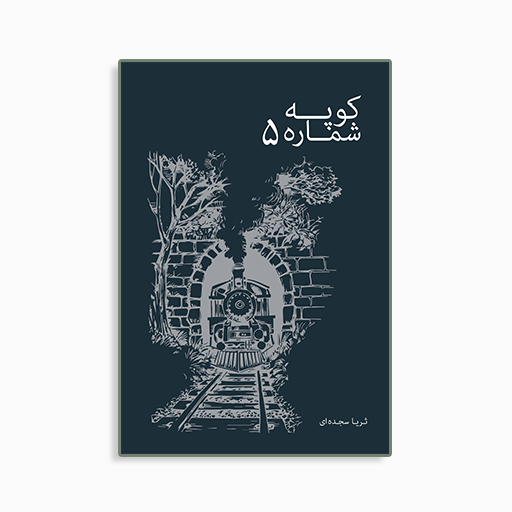Product details
- Publisher: Kidsocado (July 30, 2024)
- Language: Persian
- Paperback: 106 pages
- ISBN-10: 1778921590
- ISBN-13: 978-1778921599
- Item Weight: 4.9 ounces
- Dimensions: 5.83 x 0.22 x 8.27 inches
Compartment Number Five"** is written by the esteemed contemporary Iranian author Soraya Sajjadi, who previously published the novel *Mamaji*, which was well received by readers. In *Compartment Number Five*, Sajjadi uses character and scenery development to reflect the deficiencies, conflicts, contradictions, compulsions, bullying, discrimination, and limitations faced by youth and particularly women in Iran. The story begins with the unexpected encounter of a female passenger with a young man and his two small children in the fifth compartment of an intercity train. A village girl, who fetches water from the village well, has fallen in love with a boy. In their youth, these two have loved each other without even knowing each other's names. The boy has a tyrannical and gambling father with two wives. The boy appears to be from the first wife, but he might be the result of the first wife's relationship with a foreign man, and for this reason, the boy and his mother do not have a good emotional relationship with the head of the family. The poor boy is forced to marry the creditor's daughter due to his father's debt, a marriage he does not desire. The heartbroken girl, upon seeing the ceremony of her beloved marrying the creditor's daughter, leaves the gathering and witnesses the beating of the groom's mother, who does not consent to the marriage. Years after that pure love, the girl, now a mature woman, lives alone. She spices her speech with Ferdowsi's poetry and the heroes of the Shahnameh. The narrative style of the story is in the third person singular, with Soraya Sajjadi observing the scene from outside and expressing the feelings, thoughts, ideas, beliefs, words, actions, and movements of the story's characters as an impartial external observer. This approach allows the reader to empathize with and accompany the story from beginning to end.
